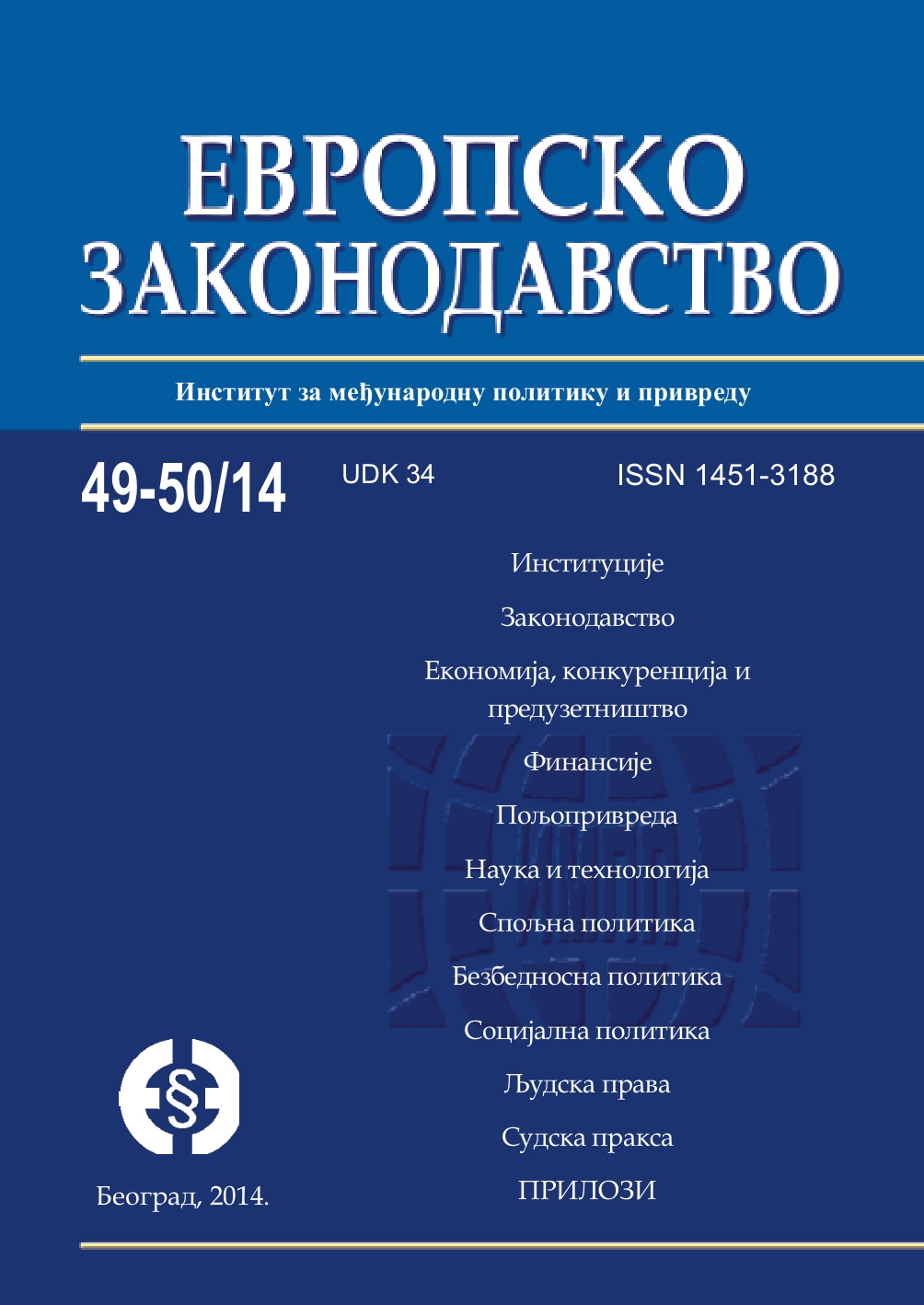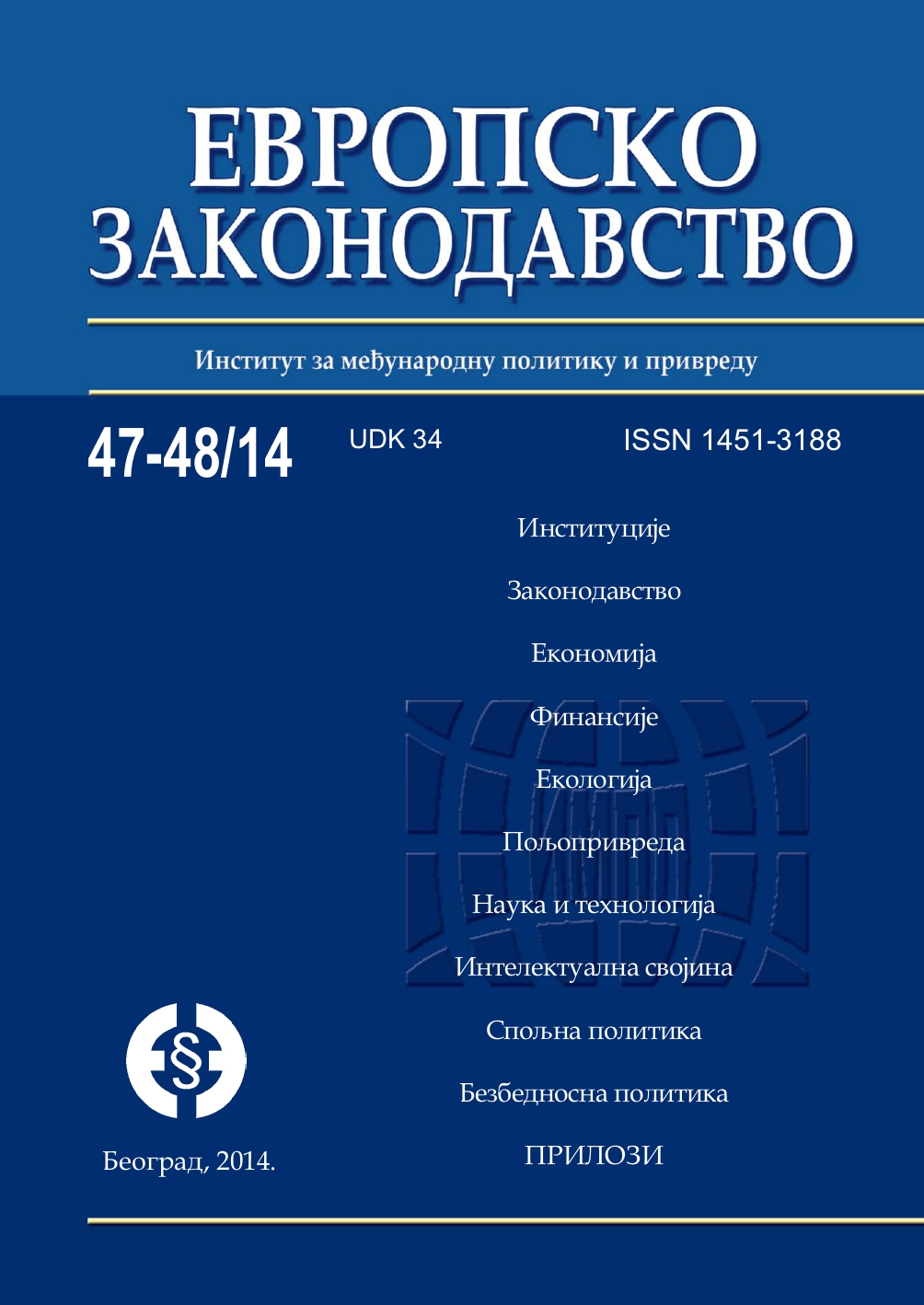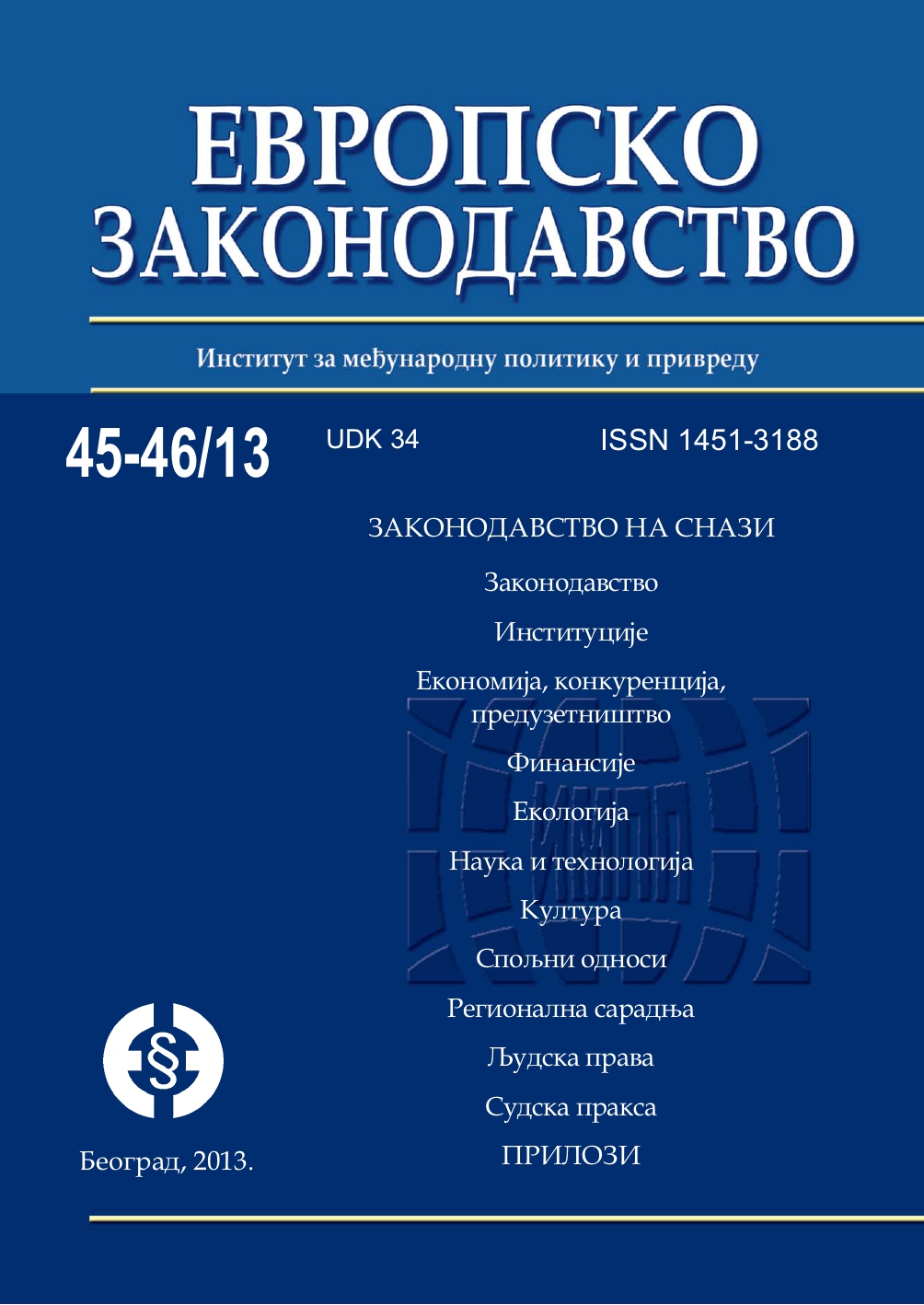Author(s): Ivana Dragić / Language(s): Serbian
Issue: 45-46/2013
The main objective of this article is to analyze the Court of Justice of The European Union, as one of the fundamental institutions of the EU. In the 1950s, with the emergence of the European Communities, there was a need for a body which shall ensure the consistent application of the Treaties and thus contribute to the dynamics of the European integration process. In this regard, it is useful to show the evolution of the Court, which was neither linear nor uniform. The Court shared the fate of European integrations and suffered changes, not only superficial ones, in terms of its official name, but also essential changes regarding composition, organization and competence. Although the Court originally had little authority that corresponded to the authentic role of the judicial authorities, it showed great courage in its work. The Court, actually, observed the institutional weaknesses, which were the inhibiting factor for the integration project. Recognizing them, the Court assumed the so-called Promethean role, in derogation of the established limits of its own competence. This is the reason why legal scholars and government officials criticized political activism of the Court, and appealed for action regarding illegal court decisions. This article pays special attention to the Court’s jurisprudence, which has produced a series of groundbreaking decisions regarding the nature and application of Community law and its relation to the rights of member states. The author, providing insight into antagonized theoretical opinions, justifies the nonconservative practise of the Court, which gave a further impulse to the cohesion of the member states of the European Community/Union.
More...



